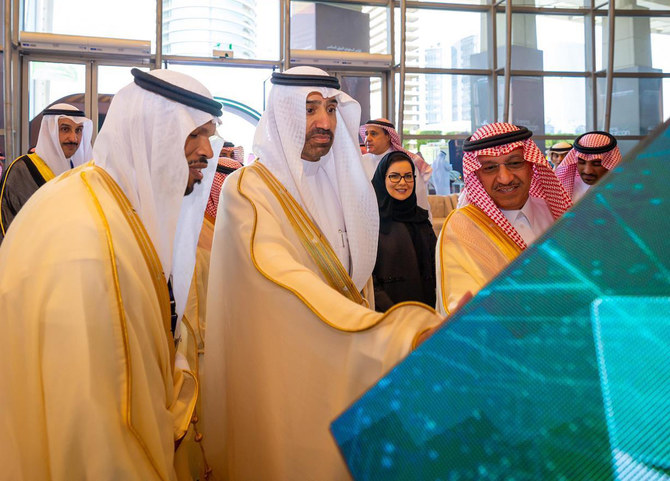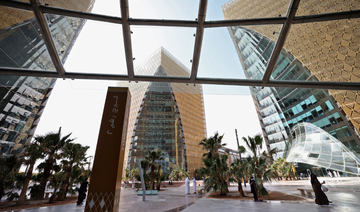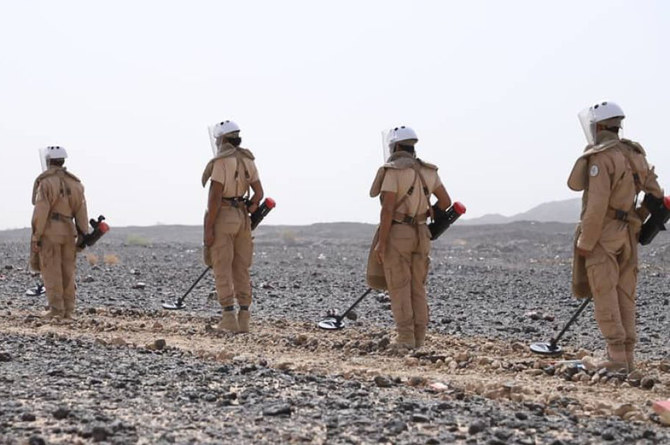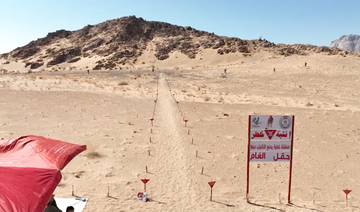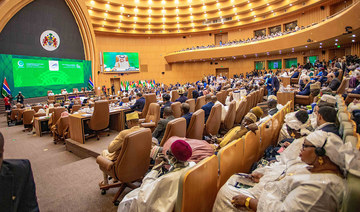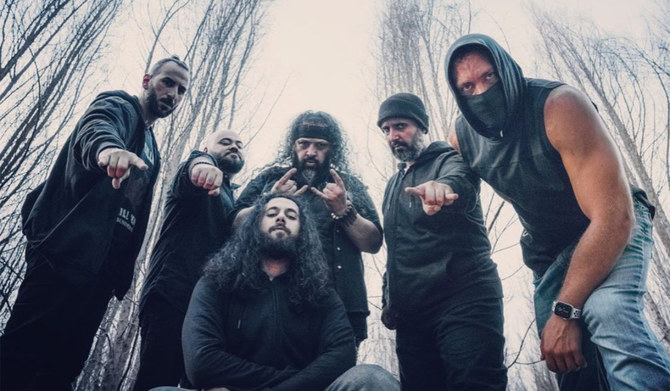There are some 500 million Muslims in non-Muslim countries including Russia, China and India. In this second part of his exclusive interview with Arab News, Ekmeleddin Ihsanoglu, secretary-general of the Organization of Islamic Cooperation (OIC), acknowledges their vital contribution to the Islamic civilization and says his organization is trying to strengthen the ties of the Muslim population of these non-OIC states with the Ummah. He also touches on the situation of women in Muslim countries and what the OIC is doing to empower women and change the stereotype of Muslim women.
What is the OIC doing for the Muslim communities in Russia, India and China?
I will give a brief overview on the situation of Muslims in these countries and our efforts to improve their conditions and create favorable conditions to strengthen their ties with the Muslim world.
The common denominator for Muslims in these countries is that Islam constitutes the second religion therein. Furthermore, Muslim populations in these countries are indigenous, not immigrant communities. In addition, their total number is estimated at about 250 million people, about 180 million in India, nearly 50 million in China, and 20 million in Russia. This means that Muslims in these three countries make up half of the Muslim populations in non-member states of the organization, who are estimated at 500 million people. Another significant common characteristic of Muslim communities in these countries is that they belong to different nationalities, cultures and races, who made effective and major contributions in enriching the Islamic civilization over the past centuries. Today they constitute a cultural and strategic depth of the Islamic world as a whole.
Everyone knows that Muslims in the era of the former Soviet Union, which spanned nearly 70 years, were subjected to harsh conditions because of their faith and have suffered intense persecution and repression. However, they held fast to Islamic civilization, culture and values in their daily lives. Conditions have changed radically since the 1990s, but they still suffer from tremendous pressure. We seek to overcome such pressure through our good relations with the Russian government. Today, our organization includes six central Asian Islamic countries that were once part of the Soviet Union. Moreover, the Russian Federation became OIC observer member in 2005.
I held a series of meetings in the Kremlin with the Russian president. We addressed many issues concerning the situation of Muslim communities in the Russian Federation in general. We have also prepared a plan to serve the interests of Muslims in Russia.
The Russian Federation is legally and morally responsible for finding just solutions to what happened to the Muslims within the Russian Federation and the Ukraine, for the Crimean Tatar Muslims and the Muslim Meskhetian Turks in Georgia, and for compensating them for the damages they sustained, as they were displaced during the different periods of the Soviet era to areas far from their countries of origin. They were stripped of their lands, farms and properties. Parliaments in both Ukraine and Georgia have recognized their right to return to their country.
We will continue to work with the states concerned and international human rights organizations to provide possible assistance to restore their rights at the earliest possible opportunity. We are planning this year to send delegations to see the conditions of Muslims in the Russian Federation, Ukraine and Georgia and provide advice to deal with these thorny issues.
I have also accorded great attention to the situation of Muslims in India. I am exerting efforts to promote dialogue and rapprochement between our organization and the Indian government to discuss issues of common interest and concern to Muslims there. On the one hand, we have Islamic ministerial resolutions urging India to implement United Nations resolutions on giving Muslims in the territory of Jammu and Kashmir the right to self-determination. This is the only existing problem with the Indian government that remains unresolved. On the other hand, India is important and has cultural and historical relations with Islam and the Islamic world.
However, since the partition of the Indian subcontinent in 1947, conditions of Muslims in India have deteriorated. A government report published in 2006, entitled the Sachar Committee Report, confirmed that Muslims in India suffer very poor representation in various government jobs and have limited access to education, health and economic progress. However, Muslims in India have been able to overcome many difficulties. They have realized remarkable cultural, economic and scientific achievements. They entertain close relations with the Muslim world. India has been ruled by three Muslim presidents so far. Since its inception, our organization enjoyed close relations with Muslims in India; relations that we seek to improve and develop.
However, what concerns us today is how to launch a constructive and strong dialogue with the Indian government in order to establish systematic relations in all fields. This is what I will seek to realize in the near future, God willing.
Did India apply for a full membership or observer membership, knowing that the country has 150 million Muslims?
The OIC finalized its criteria for full membership and observer membership recently. Any member state of the United Nations can apply for either full membership or observer membership, subject to fulfillment of the conditions enumerated in the criteria. The OIC, however, has not received any request from India in this regard.
How are the OIC’s relations with China?
Regarding our relations with the People’s Republic of China, they evolved rapidly over the past two years. My meeting with Prime Minister Wen Jiabao in Riyadh on Jan. 15, 2012, constituted an important turning point in the evolution of these relations. We were able to agree on a common strategic vision for various issues at both the multilateral and bilateral levels, particularly with regard to Africa (Somalia and Darfur) as well as Afghanistan. I sensed China's interest in contributing to the implementation of the OIC-sponsored railway line project, which will link Port Sudan on the Red Sea to Dakar, capital of Senegal, on the Atlantic Ocean.
At the level of our support to the causes of Muslims in China, we have made great efforts in this regard to contain the negative effects of the sanguinary events that took place in June and July 2009 in Urumqi, capital of Xinjiang Uyghur Autonomous Region, which left hundreds dead and thousands wounded. Following these events, I have dispatched an OIC mission that visited the areas where the events took place in August 2009 and reported thereon to ministerial conferences. We have underlined the need to grant Muslims their religious, cultural and national rights as stipulated in the Chinese constitution.
In order to strengthen these efforts, I paid, in June 2010, the first official visit to China ever by an OIC secretary-general. The visit covered Xinjiang Muslim region. We held talks with senior Chinese officials on various issues.
During the visit, a framework was developed for broader cooperation in all issues. A joint statement was issued at the conclusion of the visit, which included recognition of the importance attached by China to the organization's role as an influential intergovernmental organization. We also affirmed that the Muslims in China constituted, and still constitute, a bridge of cooperation and communication between China and the Islamic world. I met the prime minister of China again early this year, during which we discussed ways to develop relations between China and the OIC and implement joint projects. At the end of June, IRCICA (OIC Research Center for Islamic History, Art and Culture) is organizing a seminar in Beijing on “Muslims in China.”
One of the frequent criticisms about the Muslim world is the unsatisfactory situation of women, and some in the West associate that with Islam. What is the OIC doing to empower women and change the stereotype of Muslim women?
One of the major challenges for us is the issue of empowering women. There is no doubt that as the most vulnerable segment of our society, women in the Muslim world suffer from difficulties and problems. However, it is not only women in Muslim countries who suffer abuse and discrimination; unfortunately, women are often the victims, even in the most advanced societies. It is true that as part of their malicious campaign against Islam and Muslims, some Islamophobes associate women’s oppression in some Muslim societies to Islam. We don’t need to keep reiterating that Islamic teachings appreciate women's dignity, respect women and protect their social, economic, political and legal rights. Islam encourages and supports their participation in various fields of life. Indeed, the root causes of the problem for women stem from the traditions and customs that each society practices and often wrongly elevates to the level of compulsory religious commandments that everyone has to abide by.
The OIC’s vision and mission emanating from the teachings of Islam, the provisions of the Ten-Year Program of Action adopted by the heads of state and government, and the OIC Plan of Action for the Advancement of Women (OPAAW) focus on the advancement and empowerment of women. The OIC firmly believes that women should have full access to education and participate actively in the decision-making mechanism and developmental process of society. Issues such as poverty among women, women illiteracy, violence against women, and bad living conditions should be addressed in a systematic and persistent manner through local and national policies and strategies to be implemented with enough resources in the member states. To this end, special focus must be given to promote businesswomen and women in the corporate sector. Women-oriented awareness-raising programs and cooperation between the governments and civil society institutions can tremendously contribute to the cause of women in the Muslim world.
The OIC brought together the ministers in charge of women affairs in the Muslim world through convening of the first Ministerial Islamic Conference on “Women’s role in the development of OIC member states” in Turkey in November 2006. Its goal was to prepare strategies, standards, programs and goals to advance the status of women, which was followed by a series of projects and meetings. The second Ministerial Islamic Conference on the subject was held in Egypt in November 2008. It was a landmark event by the adoption of the OIC Plan of Action for the Advancement of Women (OPAAW), also known as the “Cairo Plan of Action for Women,” which serves as the road map for the efforts toward the advancement of women.
These are good objectives and initiatives, but what of the practical and implementation part?
Well, to implement the OPAAW and Ten-Year Program of Action, a proposal to establish a specialized organ for women development with its headquarters in Cairo was approved in 2010. The OIC General Secretariat has been urging member states to sign and ratify the statute of this institution to start its functions. In the same vein, the Department of Family Affairs was established in the General Secretariat in 2009 to particularly deal with the issues concerning women, children and youth and coordinate the efforts of some relevant OIC bodies in this field.
The third session of the Ministerial Conference was held in Tehran in December 2010. It adopted practical mechanisms for implementing the OPAAW. The fourth session will take place later this year in Indonesia to follow up on the implementation.
Furthermore, the OIC General Secretariat has been coordinating its efforts with some member states and international organizations as well as non-OIC member states to promote the status of women and address various challenges ahead of them in the Muslim world. This ranges from extending support and assistance to women and girls in Indonesia, Afghanistan, Palestine, Pakistan and Somalia to undertaking mother and child health projects with the US in some OIC member states, beginning with Mali and Bangladesh.
OIC organs such as the Islamic Educational, Scientific and Cultural Organization; International Islamic Fiqh Academy; and Statistical, Economic and Social Research and Training Center for Islamic Countries have also been implementing various projects on the matter. Similarly, the Islamic Chamber of Commerce and Industry has initiated a comprehensive program for the economic empowerment of businesswomen of the member states to realize their economic potential.
The General Secretariat continues to work with member states and OIC-relevant institutions, in particular the International Islamic Fiqh Academy, to project Islam as a religion that guarantees full protection of women’s rights.
The establishment of the OIC’s Independent Permanent Human Rights Commission will also give a strong push to the cause of women and the protection of their rights, especially given that four of the 18 members of the commission are women.
Another criticism is the lack of or the restrictions on freedom of expression, and again linking that to fatwas and actions by some Muslim groups or individuals. How do you answer to those criticisms?
The allegation of restriction on freedom of expression in the OIC or the OIC wanting to impose limitations on freedom of expression is incorrect. The OIC is an international intergovernmental organization and committed to the Universal Declaration of Human Rights and other international instruments. It upholds and respects an individual’s right to freedom of expression. Whatever may be the Western perception, we strongly believe that this right should be exercised responsibly and not misused or abused to incite violence by contemptuous or malicious expression in written, verbal or visual depictions. The various OIC resolutions, declarations and documents emphasize democratic principles and upholding human rights. However, the growing trend of Islamophobia that seeks to discriminate against and denigrate Islam through distortion and misperception, including measures taken in an institutionalized form and subjecting Muslims to face racially motivated discrimination and xenophobic treatment is an issue of great concern for Muslims and the OIC.
As for the fatwas, these are religious decrees that should be issued only by highly reputed scholars from prestigious institutions and who have extensive and in-depth knowledge of the Shariah laws, so we should ignore those marginal fatwas issued by dubious figures. We know that some Muslims and non-Muslims have referred to fatwas that supposedly restrict freedom of expression. Let me however refer to the fatwa issued by the International Islamic Fiqh Academy. The fatwa clearly states that, “Freedom of expression is a right guaranteed in Islam within the framework of Shariah regulations.” The fatwa then identifies what is meant by “the framework of Shariah regulations,” which includes: not to offend others in a way that affects their life, honor, reputation or social standing; adhering to objectivity, truthfulness and honesty; committing to responsibility; to take into consideration the possible consequences; and that the freedom to express opinion does not contain attacks on religion or its rituals or sanctities. Fatwas do not apply to non-Muslims, neither are they expected to comply with the proclamations therein. Non-Muslim countries have their own laws and regulations on freedom of expression, but I think we all can agree on a code of conduct that would prevent the abuse of freedom of expression and ensure its use in a responsible way to prevent expressions that impinge on the rights of others.
(Concluded)



